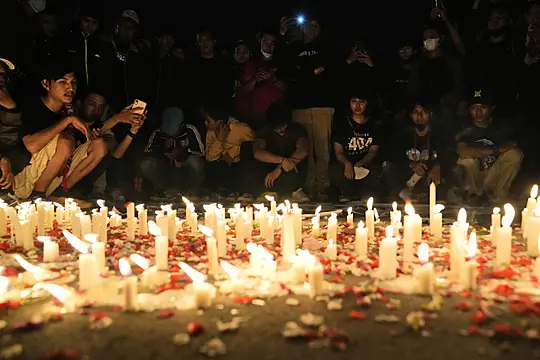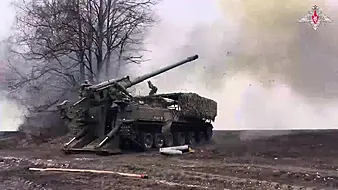Families and friends of some of the 125 people who died in a crush after an Indonesia football match are mourning the victims as their bodies were returned home.
Seventeen children were among the dead after the incident at a match in East Java’s Malang city between Arema FC and visiting Persebaya Surabaya on Saturday.
Only fans of the home side, Arema FC, were allowed to attend after organisers banned visiting supporters at the stadium in Kanjuruhan due to Indonesia’s history of violent football rivalries.

President Joko Widodo has ordered an investigation of security procedures, and the president of world governing body Fifa, Gianni Infantino, called the deaths “a dark day for all involved in football and a tragedy beyond comprehension”.
Seven children were injured and treated in hospital, government officials said. Police said 323 people overall were injured in the crush, some of whom are still in a critical condition.
Witnesses said fans flooded the pitch after Arema lost 3-2 to Persebaya, ending 23 years of being undefeated at home against their rivals.

Some of the 42,000 Arema fans threw bottles and other objects at players and officials. At least five police vehicles were toppled and set ablaze outside the stadium.
Riot police trying to stop the violence fired tear gas, including toward the spectator stands, and triggered the crush of fans making a panicked, chaotic run for the exits.
Most of the 125 people who died were trampled upon or suffocated.
National Police chief Listyo Sigit Prabowo said in a news conference: “I ensure that investigation on this case will be conducted thoroughly and seriously.”

Mr Widodo has ordered a suspension of the Indonesian premier league until safety is re-evaluated and security is tightened.
Indonesia’s football association has also banned Arema from hosting matches for the rest of the season.
Rights group Amnesty International urged Indonesia to investigate the use of tear gas at the stadium and ensure that those found in violations are tried in open court.
While Fifa has no control over domestic games, it has advised against the use of tear gas at stadiums.
Despite Indonesia’s lack of international accolades in the sport, hooliganism is rife in the football-obsessed country where fanaticism often ends in violence.
Data from Indonesia’s watchdog, Save Our Soccer, showed 78 people have died in game-related incidents over the past 28 years.







